Search Images
Browse Content (p. 1348)
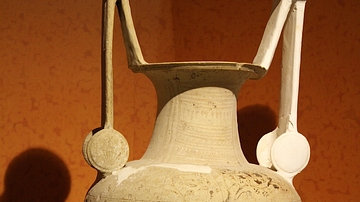
Image
Messapian Trozella Vase, Valesio
The two-handled pottery vessel (trozella) which was unique to the Messappian culture of southern Italy. This version dates to the 4th century BCE and was probably used for funerary purposes. From Valesio near Brundisum, southern Italy. (Archaeological...
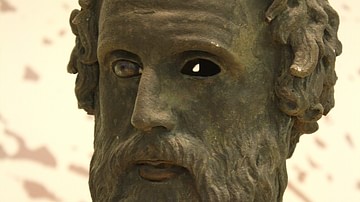
Image
Head of a Philosopher, Brundisium
The bronze head of a Greek philosopher. 4th century BCE, Brundisium, southern Italy. (Archaeological Museum of Brindisi, Italy)
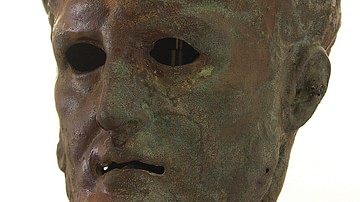
Image
Hellenistic Prince, Brundisium
A bronze figure known as the Hellenistic Prince, Brundisium, southern Italy, 2nd-1st century BCE. (Archaeological Museum of Brindisi, Italy)
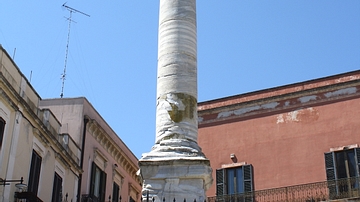
Image
End of the Appian Way Column Marker
A 19.2 m marble column which dates to the 1st century BCE and was part of an honorary monument in Brindisum. Traditionally, the column was thought to mark the end of the Roman road the via Appia (Appian Way) but inscriptions on the column...
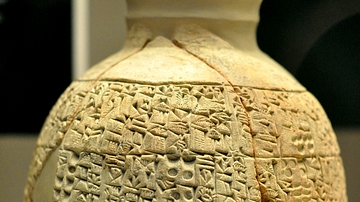
Image
Vessel from Umma
"This is the boundary according to the monument of (the god) Shara". This is the historical cuneiform text on this vessel, which gives the city of Umma's account of its long-running border dispute with Lagash. Early Dynastic III period, circa...

Image
Rules for playing the Royal Game of Ur
There are Akkadian cuneiform inscriptions as well as explanatory diagram and rules for playing the so-called the game of 20-squares (the Royal Game of Ur).This is the front aspect of the clay tablet which shows how the central squares were...
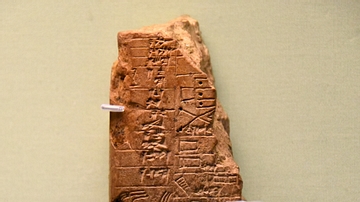
Image
Secret Babylonian Numbers
A compendium of ancient signs united the knowledge of generations of scholars. It includes pictographic symbols from around 3000 BCE and a secret number for each sign, for encoding texts. Circa 450 BCE. Clay tablet. From Babylon, Mesopotamia...
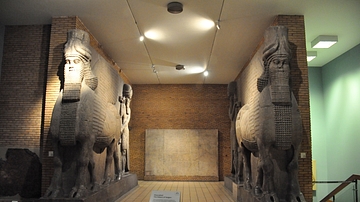
Image
Human-Headed Winged Bulls and Genies from Khorsabad
A pair of human-headed and winged-bulls (lamassu), stood on either side of a gate at one of the citadel walls at Khorsabad. Two human-headed and winged protective spirits or genies stand behind the bulls; those divine figures are about to...
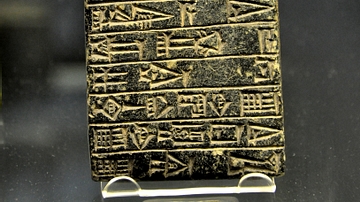
Image
Stone Foundation Tablet of Gudea
This tablet mentions the name of Gudea, ruler of Lagash, to commemorate restoration of the Temple of Nindara. Found below the pavement of the Temple of Nindara at Ur, Southern Mesopotamia, modern-day Iraq. Lagash II period. (The British Museum...
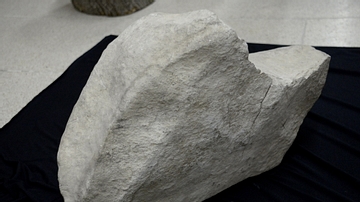
Image
Gopala Jewish Tombstone
This rock is an inscribed tombstone of a deceased Jewish woman. The inscriptions are in Hebrew. Her name was "Siporah daughter of Dan". The date on the tombstone is 1356/1357 CE. From Gopala village, Bazian (Baziyan), Sulaymaniyah Governorate...